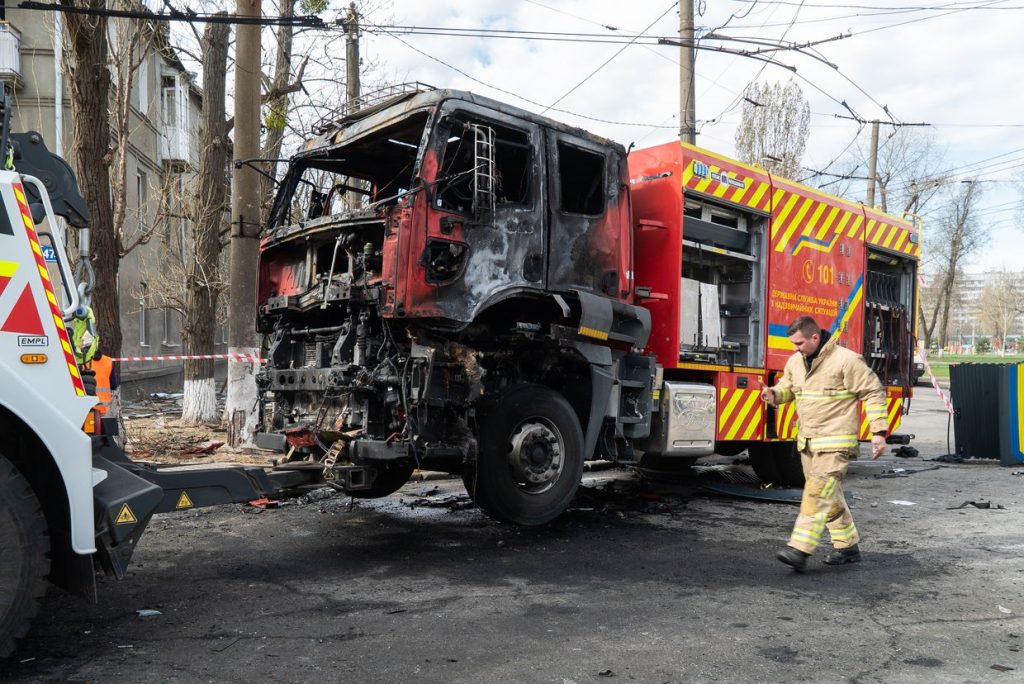Russia has been using a ruthless and illegal military tactic called a “double-tap” attack in its wars, a tactic that involves hitting a building, waiting for first responders and media to arrive, and hitting the same place again to target those who came to help. This tactic has been used extensively in Syria since 2015 and has now been deployed in Ukraine following the full-scale invasion. These attacks have killed and injured dozens of rescuers, police officers, medics, and journalists, who should be protected by international law. The recent escalation in “double-tap” attacks in Ukraine may be linked to Russia’s attempt to affect the morale of Ukrainians and inflict greater damage to the critical infrastructure of the country.
Russian “double-tap” attacks have resulted in numerous casualties in Ukraine, with attacks in cities like Zaporizhzhia and Odesa claiming the lives of innocent civilians, first responders, and journalists. These attacks involve firing multiple munitions at a target with a time gap between strikes, maximizing damage and causing loss of life, including to rescuers working at the scene. The attacks have caused widespread destruction and loss of life, with many civilians and first responders harmed in the process. Despite the devastating impact of these attacks, Ukraine is determined to continue its fight against Russian aggression.
The history of “double-tap” attacks traces back to Russia’s wars in Syria, where this tactic was used extensively against humanitarian workers. The White Helmets volunteer organization in Syria lost over 300 volunteers due to these attacks. The Reckoning Project, which gathers testimonies of war crimes in Ukraine, draws parallels between Russia’s tactics in Syria and Ukraine, highlighting a pattern of attacking civilians indiscriminately. These attacks are considered war crimes if they deliberately target civilians, first responders, humanitarian workers, and journalists, violating the Geneva Convention.
The surge in “double-tap” attacks in Ukraine comes at a time when Ukrainian forces are struggling on the battlefield and facing challenges in receiving Western military aid. Ukrainian cities have been targets of large-scale attacks on their energy systems, further exacerbating the situation. Some experts suggest that Russia’s intensified attacks may be retaliation for successful drone strikes by Ukrainian forces inside Russia. Efforts are being made to protect Ukrainian emergency service personnel from these attacks, with new safety protocols being implemented to minimize casualties.
Despite the ongoing threat posed by Russia’s “double-tap” attacks, journalists and emergency service workers in Ukraine remain committed to their work in the field. The attacks have not deterred their determination to report on the conflict and provide assistance to those in need. Ukraine continues to prepare for a major Russian offensive, expected to begin in the coming months, as tensions between the two nations escalate. The international community must stand in solidarity with Ukraine and support its fight against Russian aggression.


